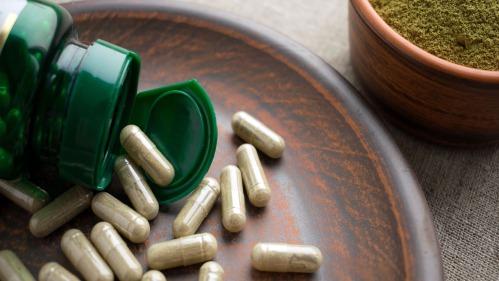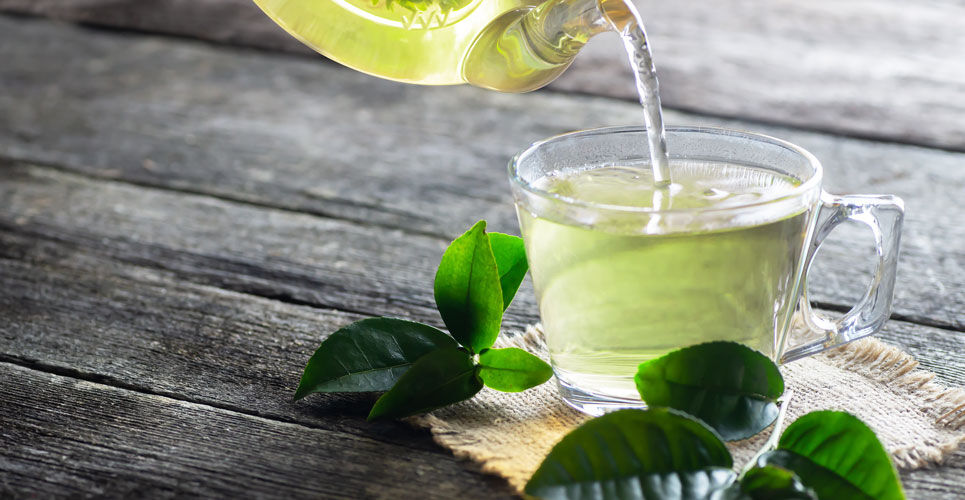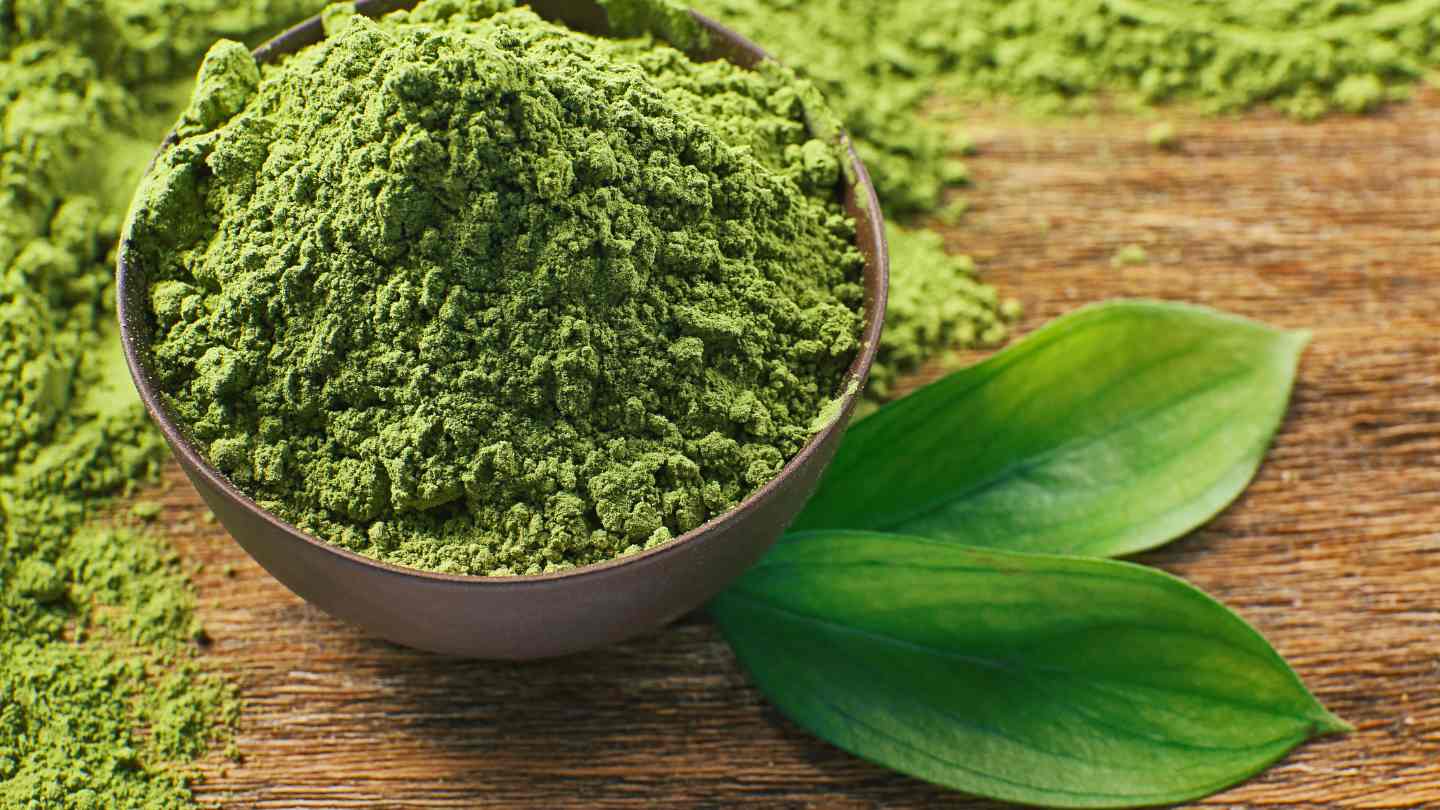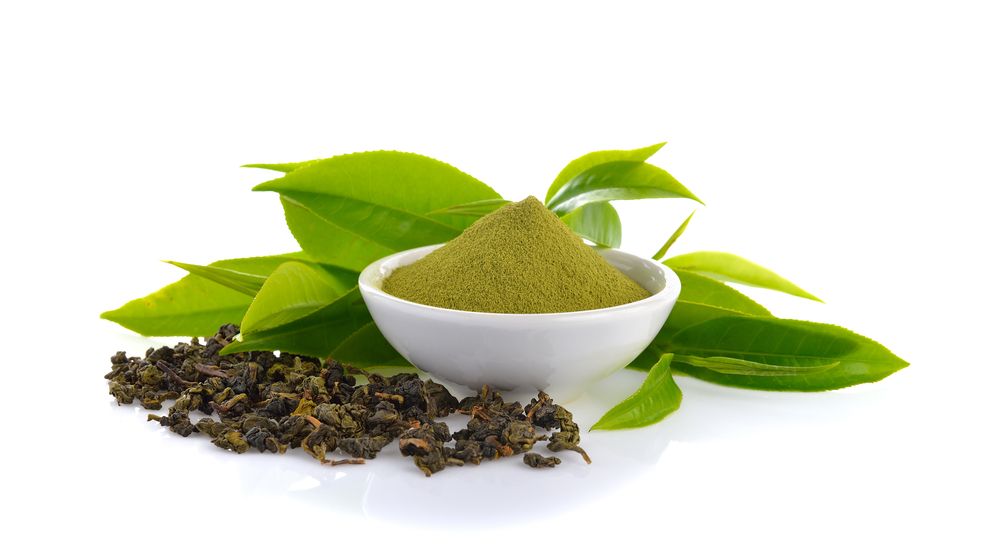Introduction

Green tea extract has gained immense popularity in recent years due to its numerous health benefits. Derived from green tea leaves, this potent supplement is known for its high concentration of antioxidants and other bioactive compounds. In this article, we will delve into what green tea extract is, its origins, and how it differs from regular green tea.
What is Green Tea Extract?

Green tea extract is a concentrated form of the bioactive compounds found in green tea leaves. It is primarily derived from the Camellia sinensis plant, the same plant that produces other types of tea, such as black and oolong tea. However, green tea leaves are processed differently to preserve their high levels of antioxidants and polyphenols, particularly catechins like epigallocatechin gallate (EGCG). Look for overview of Green Tea Extract at University of Rockfeller Medical Center.
Historically, green tea has been consumed for centuries, especially in Asian cultures like China and Japan, where it is revered for its medicinal properties. The extraction process involves steeping green tea leaves in alcohol or water, then drying the resulting solution to create a concentrated powder or liquid. This extract contains a higher concentration of beneficial compounds than can be achieved by simply drinking green tea.
While both green tea and green tea extract originate from the same plant, there are significant differences between the two in terms of concentration and usage.
- Concentration: Green tea extract is much more concentrated than green tea. A single dose of green tea extract can contain the same amount of active compounds found in multiple cups of brewed green tea. This makes the extract a more potent source of antioxidants and other beneficial substances.
- Forms of Consumption: Green tea is typically consumed as a beverage, brewed from tea leaves or tea bags. In contrast, green tea extract is available in various forms, including capsules, tablets, powders, and liquid tinctures. This allows for more versatile use in dietary supplements and skincare products.
- Convenience and Dosage: Taking green tea extract can be more convenient for those who want to ensure they receive a consistent and measurable dose of its beneficial compounds. It eliminates the need to drink multiple cups of tea throughout the day to achieve similar health benefits.
Benefits of Green Tea Extract

Green tea extract is renowned for its numerous health benefits, which are primarily attributed to its high concentration of antioxidants and other bioactive compounds. Learn 10 benefits of Green Tea Extract at Healthline. Let’s explore these benefits in detail.
Antioxidant Properties
Green tea extract is a powerhouse of antioxidants, which are compounds that help protect the body from oxidative stress and free radical damage. The most potent antioxidants in green tea extract are catechins, particularly epigallocatechin gallate (EGCG). These antioxidants can neutralize free radicals, reducing cell damage and inflammation.
Weight Loss and Metabolism
One of the most popular uses of green tea extract is for weight loss and enhancing metabolism. Studies have shown that green tea extract can increase fat oxidation, helping the body burn fat more efficiently. Additionally, it has been found to boost metabolic rate, which can contribute to weight loss over time. Check out this article on Healthline about Green Tea Extract and weight loss.
Heart Health
Green tea extract has been shown to improve heart health by positively affecting cholesterol levels and blood pressure. Research indicates that it can lower total and LDL (bad) cholesterol levels, which are risk factors for heart disease. Moreover, its antioxidant properties help prevent the oxidation of LDL cholesterol, which is a key step in the development of heart disease. Green tea extract also promotes better blood flow and lowers blood pressure, reducing the risk of cardiovascular issues.
Cancer Prevention
The potential anti-carcinogenic properties of green tea extract have been widely studied. Its high content of catechins, particularly EGCG, has been shown to inhibit the growth of cancer cells and induce apoptosis (programmed cell death) in various types of cancer, including breast, prostate, and colorectal cancers. While more research is needed to fully understand its role in cancer prevention, early studies are promising.
Brain Health
Green tea extract offers cognitive benefits and neuroprotection, making it beneficial for brain health. The antioxidants in green tea extract can protect brain cells from damage and support overall brain function. Studies suggest that EGCG can cross the blood-brain barrier, exerting protective effects on neurons and potentially lowering the risk of neurodegenerative diseases like Alzheimer’s and Parkinson’s. Additionally, green tea extract can improve cognitive function and enhance memory and attention.
Skin Health
Green tea extract is also beneficial for skin health, offering improvements in skin clarity and anti-aging effects. Its antioxidants help protect the skin from damage caused by UV radiation and environmental pollutants. Moreover, green tea extract can reduce inflammation and improve skin elasticity, helping to prevent the signs of aging. Topical applications of green tea extract have been shown to reduce acne and improve overall skin appearance.
Uses of Green Tea Extract

Green tea extract is a versatile product that is widely used in various industries due to its potent health benefits and high concentration of bioactive compounds. Its uses span dietary supplements, cosmetic products, and even food and beverages, making it a popular choice for enhancing health and wellness. You can learn more about Green Tea Extract uses at MedMD.
Dietary Supplements
One of the primary uses of green tea extract is in the form of dietary supplements. These supplements are available in various forms, including capsules, powders, and liquids, making them convenient for daily consumption. The high concentration of catechins, particularly EGCG, in green tea extract, makes it an effective supplement for those looking to reap the benefits of green tea without having to consume multiple cups of tea each day.
- Capsules: Green tea extract capsules are a popular choice for those who prefer a quick and easy way to incorporate the benefits of green tea into their routine. These capsules often contain a standardized dose of catechins and EGCG, ensuring consistent intake of these beneficial compounds.
- Powders: Green tea extract powders can be easily mixed into smoothies, shakes, or other beverages, providing a flexible option for consumption. This form allows for customization of dosage and can be a convenient addition to a daily health regimen.
- Liquids: Liquid green tea extracts are another convenient option, often used as drops that can be added to water or other drinks. This form can offer rapid absorption and is ideal for those who prefer not to take pills or powders.
Cosmetic Products
The inclusion of green tea extract in skincare and anti-aging products has become increasingly common due to its antioxidant properties and ability to improve skin health. The effects of green tea catechins on the skin are well-documented, making green tea extract a valuable ingredient in cosmetic formulations.
- Anti-Aging: Green tea extract is a popular ingredient in anti-aging products due to its ability to fight free radicals and reduce oxidative stress on the skin. This helps to prevent the formation of wrinkles and fine lines, keeping the skin looking youthful and radiant.
- Acne Treatment: The anti-inflammatory and antimicrobial properties of green tea extract make it effective in treating acne. It helps to reduce redness, swelling, and the occurrence of breakouts, promoting clearer skin.
- Moisturizers and Serums: Many moisturizers and serums now include green tea extract to take advantage of its hydrating and soothing properties. It helps to nourish the skin, improve elasticity, and protect against environmental damage.
Food and Beverages
Green tea extract is also used to fortify health foods and drinks, enhancing their nutritional profile and providing additional health benefits associated with green tea consumption.
- Fortified Foods: Green tea extracts are added to a variety of health foods, including protein bars, granolas, and snacks. This addition not only boosts the antioxidant content of these foods but also provides the beneficial effects of green tea catechins on overall health.
- Beverages: In the beverage industry, green tea extract is used to create enhanced drinks such as energy drinks, sports beverages, and flavored waters. These products offer the benefits of green tea consumption in a convenient and enjoyable form.
- Functional Foods: The trend of functional foods, which provide additional health benefits beyond basic nutrition, often includes the use of green tea extract. Products like yogurt, cereals, and even baked goods can be enriched with green tea extracts to offer consumers the health benefits of green tea in everyday foods.
How to Use Green Tea Extract

Green tea extract is a versatile supplement that can be incorporated into your routine in various ways. Understanding the correct dosage and administration methods is essential to maximizing its benefits. Additionally, combining green tea extract with other supplements can enhance its effects. Here’s an in-depth look at how to use green tea extract effectively.
Dosage and Administration
The recommended dosage of green tea extract can vary depending on the intended use and the specific product formulation. Here are some general guidelines:
- General Health and Antioxidant Support: For general health benefits and antioxidant support, a typical dosage ranges from 250 to 500 mg per day of green tea extract standardized to 50-75% catechins and 30-50% EGCG. This dosage is equivalent to drinking several cups of green tea daily but in a more concentrated form.
- Weight Loss and Metabolism: For weight loss and metabolic enhancement, higher doses may be beneficial. Studies have shown that dosages ranging from 400 to 600 mg per day, containing around 200-300 mg of EGCG, can help boost fat oxidation and increase metabolic rate. It is often recommended to split this dose into two or three servings throughout the day for optimal results.
- Heart Health: To support cardiovascular health, dosages of 400 to 800 mg per day, standardized to contain high levels of catechins, have been used in research to lower cholesterol levels and improve blood pressure. As with other uses, dividing the total daily dose into multiple servings can enhance absorption and efficacy.
- Cancer Prevention: The use of green tea extract for cancer prevention is still under research, but doses of up to 800 mg per day have been studied for their potential anti-carcinogenic properties. It is crucial to consult with a healthcare provider before using high doses for this purpose.
- Skin Health: For skin health, green tea extract can be applied topically or taken orally. Oral dosages of 300 to 500 mg per day are common, while topical products should be used according to the manufacturer’s instructions.
Methods of Consumption
Green tea extract can be consumed in various forms, each offering unique advantages:
- Capsules and Tablets: These are the most convenient forms, providing a precise dosage without the need for preparation. Capsules and tablets are easy to incorporate into a daily supplement regimen and can be taken with or without food.
- Powders: Green tea extract powders can be mixed into smoothies, shakes, or other beverages. This form allows for flexibility in dosage and can be easily adjusted to meet individual needs. Powders are also ideal for those who prefer not to take pills.
- Liquid Extracts: Liquid green tea extracts offer quick absorption and can be added to water, tea, or other drinks. They often come with a dropper for easy measurement and can be a convenient option for those who need a portable solution.
- Topical Applications: For skin health, green tea extract can be found in creams, serums, and lotions. These products are designed for direct application to the skin, where the antioxidants can help reduce inflammation and improve skin appearance.
Combining with Other Supplements
Combining green tea extract with other supplements can create synergistic effects, enhancing the overall benefits. Here are some combinations to consider:
- Green Tea Extract and Vitamin C: Vitamin C can enhance the absorption of green tea catechins, making this a powerful antioxidant combination. This pairing can provide robust support for immune function and skin health.
- Green Tea Extract and Fish Oil: Combining green tea extract with omega-3 fatty acids from fish oil can improve heart health. Both supplements support cardiovascular function, reduce inflammation, and help maintain healthy cholesterol levels.
- Green Tea Extract and Garcinia Cambogia: For weight loss, combining green tea extract with Garcinia Cambogia, a popular weight loss supplement, can enhance fat burning and appetite suppression. This combination can be particularly effective when combined with a balanced diet and exercise.
- Green Tea Extract and Ginkgo Biloba: For cognitive health, pairing green tea extract with Ginkgo Biloba can support brain function and protect against neurodegenerative diseases. Both supplements have neuroprotective properties that can improve memory and mental clarity.
- Green Tea Extract and Probiotics: Probiotics support gut health, which can be enhanced by the antioxidant properties of green tea extract. This combination can improve digestion, boost the immune system, and promote overall wellness.
When combining supplements, it is important to consider potential interactions and consult with a healthcare provider to ensure safety and efficacy. Each individual’s needs and health conditions are unique, so personalized advice is essential.
Safety and Side Effects
While green tea extract offers numerous health benefits, it is essential to be aware of its potential side effects, risk factors, and interactions with medications. Additionally, understanding the regulatory and quality considerations can help ensure the safe and effective use of green tea extract.
Potential Side Effects
Green tea extract is generally considered safe for most people when taken in recommended doses. However, some individuals may experience side effects. These can range from common, mild symptoms to rare, more severe reactions.
- Common Side Effects:
- Digestive Issues: Some people may experience stomach upset, nausea, or diarrhea, particularly when taking green tea extract on an empty stomach.
- Headaches: Caffeine-sensitive individuals might experience headaches, especially if they consume large amounts of green tea extract.
- Insomnia: The caffeine content in green tea extract can cause sleep disturbances or insomnia if taken late in the day.
- Rare Side Effects:
- Liver Toxicity: Although rare, high doses of green tea extract have been associated with liver damage. Symptoms of liver toxicity include jaundice, dark urine, and abdominal pain. If these occur, discontinue use and seek medical attention immediately.
- Allergic Reactions: Some individuals may be allergic to green tea extract, leading to symptoms such as itching, swelling, and difficulty breathing.
Risk Factors and Contraindications
Certain individuals should exercise caution or avoid using green tea extract altogether.
- Pregnant and Breastfeeding Women: The safety of green tea extract during pregnancy and breastfeeding is not well-established. It is advisable to limit consumption or consult a healthcare provider before use.
- Individuals with Liver Conditions: Those with existing liver problems should be cautious, as green tea extract can exacerbate liver issues.
- Caffeine Sensitivity: Individuals sensitive to caffeine should use green tea extract with caution, as it contains caffeine which can cause jitteriness, anxiety, and increased heart rate.
- Pre-existing Medical Conditions: People with conditions such as anxiety disorders, heart arrhythmias, and high blood pressure should consult their healthcare provider before taking green tea extract.
Interactions with Medications
Green tea extract can interact with certain medications, potentially altering their effectiveness or increasing the risk of side effects.
- Blood Thinners (Anticoagulants): Green tea extract contains vitamin K, which can interfere with blood-thinning medications like warfarin, reducing their effectiveness and increasing the risk of blood clots.
- Stimulants: Combining green tea extract with other stimulants (such as ephedrine) can amplify stimulant effects, leading to increased heart rate and high blood pressure.
- Beta-blockers: The caffeine in green tea extract can reduce the efficacy of beta-blockers used to manage high blood pressure and heart conditions.
- Chemotherapy Drugs: Some studies suggest that green tea extract might interact with certain chemotherapy drugs, potentially affecting their activity. It is crucial for cancer patients to discuss supplement use with their oncologist.
Regulatory and Quality Considerations
Ensuring the quality and safety of green tea extract supplements involves understanding regulatory standards and choosing products that adhere to stringent quality control measures.
- Quality Control in Supplements: Look for products that undergo rigorous testing for purity, potency, and contamination. Reputable manufacturers often provide certificates of analysis from third-party laboratories, ensuring their products meet high standards.
- Certification and Standardization: Choose supplements that are standardized to contain specific amounts of active compounds, such as catechins and EGCG. Certifications from organizations like the United States Pharmacopeia (USP), NSF International, or ConsumerLab.com can provide additional assurance of quality and safety.
When selecting a green tea extract supplement, it is essential to consider these factors to ensure you are getting a safe, high-quality product. Always consult with a healthcare provider before starting any new supplement, especially if you have existing health conditions or are taking other medications.
